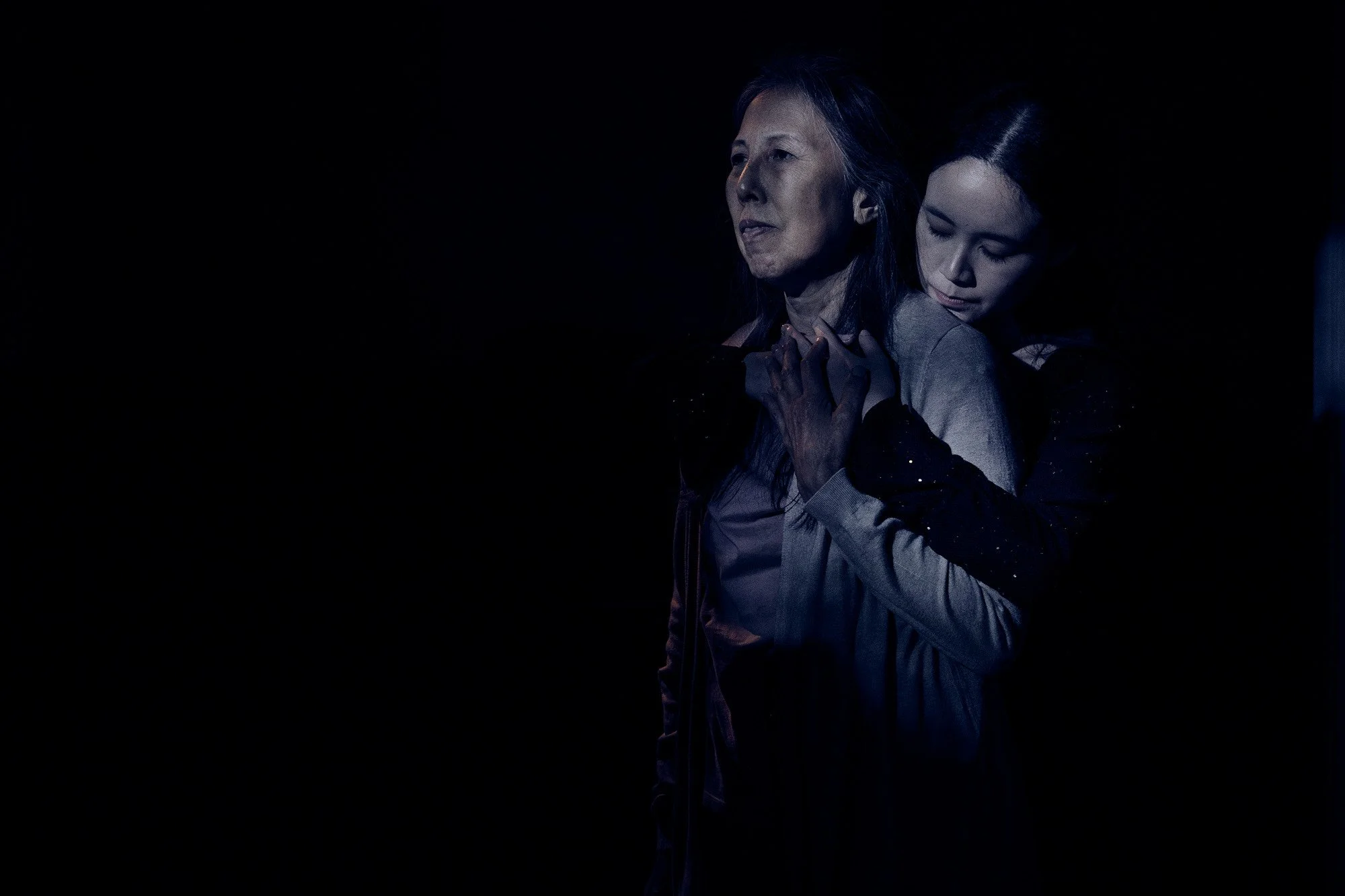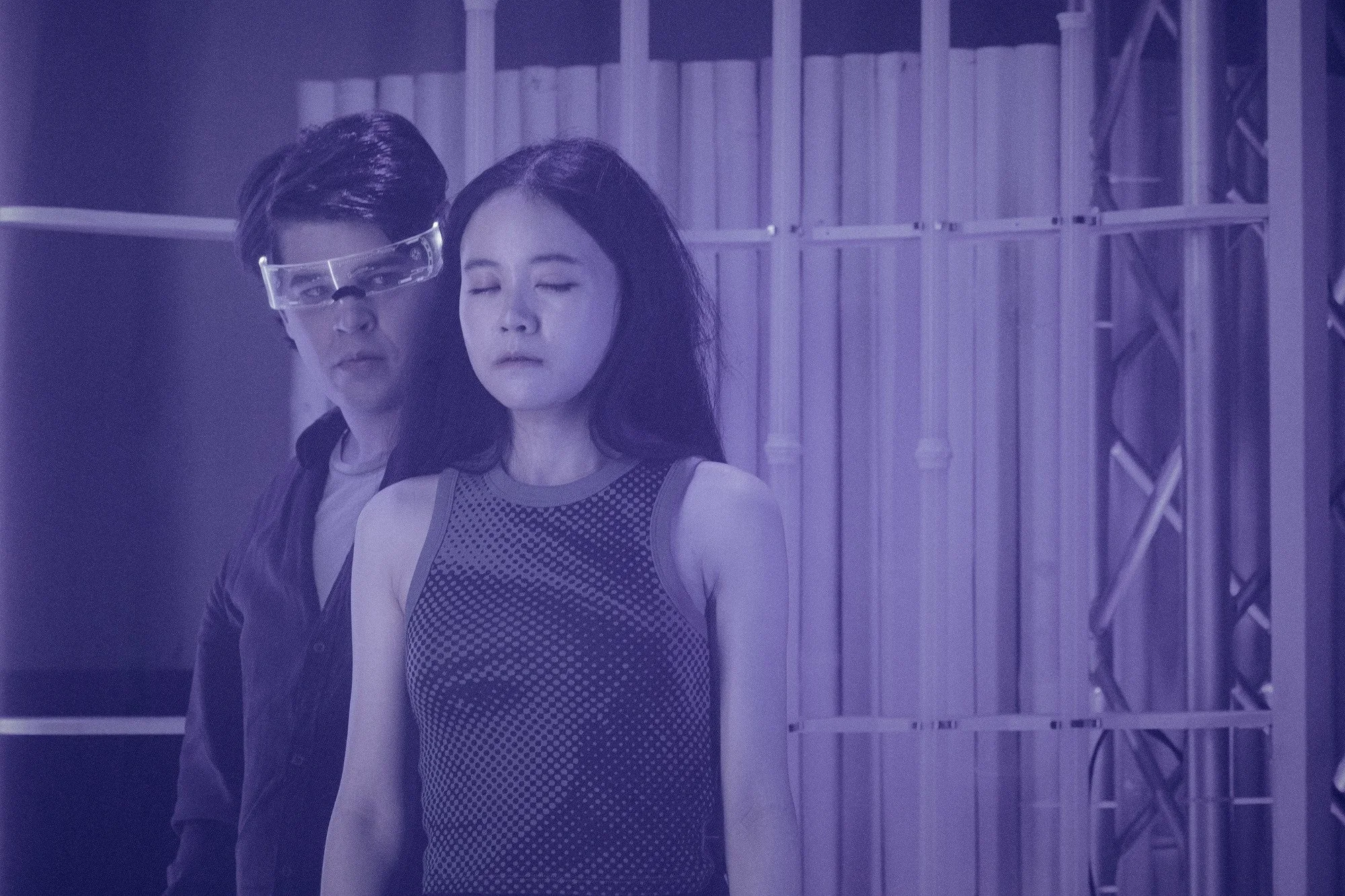AI May - Embodi Theatre
Images credit: Naz Mulla
AI May is a play that explores grief, and the ways in which we process it, or the ways in which we do not. It is a slice of tomorrow-styled science fiction, or as it totes itself, futuristic realism, wherein potential technologies of artificial technology have become commonplace in the not-too-distant future, replacing social services and healthcare and other daily essentials.
In the wake of her daughter’s untimely death, our protagonist Jasmine Chen is gifted an AI robot styled in May’s likeness.
There is a lot going on. It’s no small feat, attempting to conquer several very large themes, including but not limited to, the challenges of parenting in first- and second-generation migrant families, the complex relationships between mothers and daughters, whether AI can support or replace community in times of grief, can AI actually ever replicate the humanity of those we love, and how does a parent move on after the violent death of a child, especially a single parent of an only child.
I was excited to see a play exploring transhumanism, as it’s a vital conversation that needs to be had, the socio-political the implications of what it is and how it will transform our world are of the utmost importance. The play shies away from deep exploration of these themes, giving heavier weighting to the mother’s transformation through grief.
Strong performances from the lead roles included a stellar performance from Anna Yen as mother, and a spookily-good spaced-out robot daughter from Clarise Ooi. The variously comedic and sentimental side characters from Ke Zhen Yi’s multi-character roles were presented with gusto, although I had a moment of incongruence though when moving between the deeply sentimental to the play-for-laughs scenes. Justin Ryan’s Jeremy was played heavy-handed, although the dark overtones and maudlin character development well suited the play. Within the bounds of the small theatre, it is well supported by lighting (Geoff Squires), sound and projection (Freddy Komp).
The play is bilingual and is presented with surtitles in both Chinese and English, and this is a highlight and something that helped to anchor the many ideas into a solid and passably convincing narrative line. Even within a single scene, the characters swap between languages, in the very natural way that bilingual speakers do. Aside from the inbuilt accessibility, which is honestly so refreshing, it also gives real depth the story of mother Jasmine Chen and her daughter May, giving a nuance as they tussle with Jasmine’s helicopter parenting and May’s contemporary dreams for her burgeoning 20-something life. This multilingual accessibility, which extended into the marketing campaign, was clearly reflected in the diversity of the audience attending, so kudos to that.
The play swings between deeply touching sentimental moments into light-hearted comedic riffs, and I’m left wondering which way I was intended to fall. The set felt rough hewn; not quite real enough to be realistic, not quite weird enough to be surreal, the half-packed-up housing commission flat felt a bit too contemporary juxtaposed against the sci-fi robot portal, although I give it some grace for being a handmade indie production. The multiple weighty moral questions are given equal footing, so that I was left a bit dizzy from all that it wants me to reflect on in just over an hour. All of these elements make for a very ambitious piece of work and it would benefit from some more time stripping it down to its bones and letting our focus fall on a single strand. Ultimately, I became overwhelmed by so much going on.
Although it was cacophonic, I enjoyed the work and the provocations it offered. It was great to see sci-fi on the stage, it’s usually reserved for cinema so it was lovely to see in the flesh, it gives it a new flavour. This is the inaugural season of the play following two creative developments, and I look forward to seeing it refine itself.
Postscript – I was delighted by the careful and polite welcome to the show, that explored why it is so important that audiences turn off or properly ignore their phones during a performance. Recently at several events I’ve been disturbed by people checking their phones, to look at their GPay, their social media, their emails. It’s a modern horror. As the introduction eloquently put it – the audience is an essential part of this equation, the theatre cannot exist with out both players and watchers, and we all enjoy it better when we exclude the outside world and lend our full selves to the gift of the stage.


